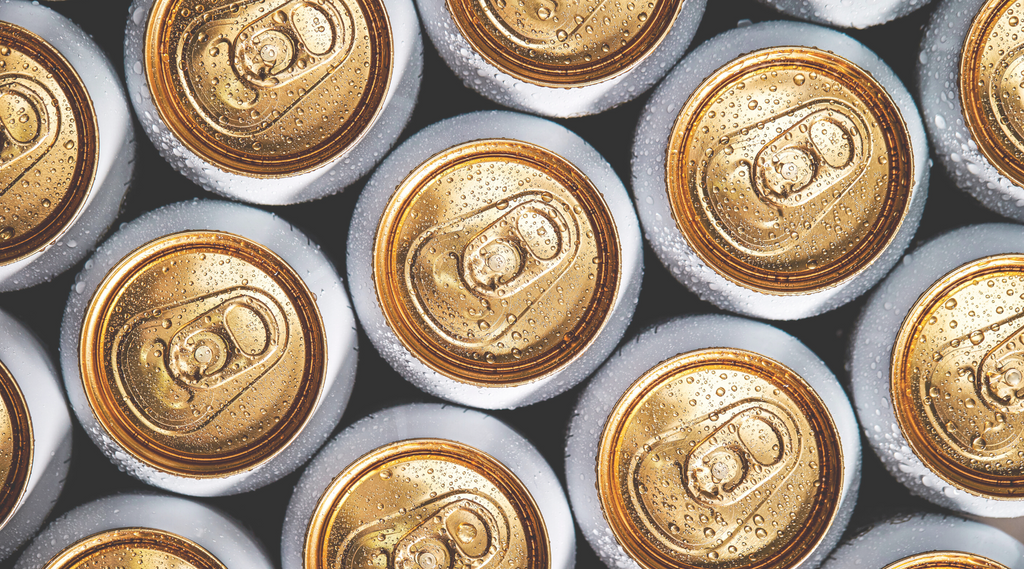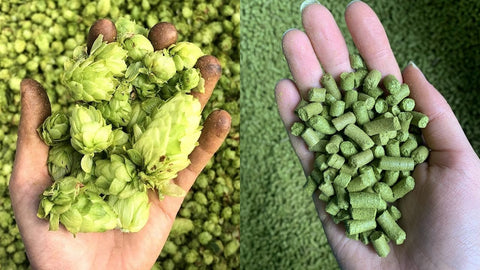
Beer cans - better than beer bottles?
Have you ever noticed how beer cans have not been treated equally as bottles? If you would look for a nice beer as a gift, would you rather buy a beer in a bottle than in a can? Indeed beer cans have had a lower image than beer bottles. It seems cheaper. In movies, you may have noticed how students or homeless people often drink beers from cans.
If you are a beer drinker who does not judge, then good for you! If appearance matters to you, then know that the craft beer movement is changing things and beer cans are trendy again. Now you can see beer cans on shelves illustrated better than some artwork!
Let us dive deeper into the subject and find out the deal with beer cans. And are they better or worse than beer bottles?
We will discuss the following:
- History of the beer can
- The image of the beer can
- The advantages of a beer can
- Disadvantages of a beer can
- Is the beer in a can better than a beer bottle?
History of the beer can
Breweries were already thinking about putting beer in cans in the early 1900s. In Germany, they came up with a steel can that was closed up with a crown-shaped lid. The design was not perfect, and experiments were continued.
It did not take long until the first proper beer can was invented in 1933 by American Can for Gottfried Krueger’s Brewing Company. Two years later, shops started to sell beers in cans. Nevertheless, putting beers in cans was not possible for all breweries. They did not have the finances to switch their current bottling equipment. That led to another invention, beer cans with a cone top. A cone top allowed the brewer to fill in the can and close it with a bottle cap.
The first beer in cans in Europe was made available in 1936 by Felinfoel brewery in the United Kingdom. This fact is under debate, though. That is because, at the same time, several other breweries around England and Scotland introduced their beers in cans.
World War II impacted the can production. But shortly after the war, cans were back on the shelves. In the late 50s, breweries used a party can that held 5 to 7 pints. That was quite popular in Europe but not in the United States.
Beer cans continued to develop, and various designs and different materials were used. Large industrial breweries and companies started to use cans and mass-produce beers in cans. Thus cans obtained the image of low-cost beers. That changed in the early 90s when craft beer breweries started experimenting with beer cans. The image of beer cans changed, and craft beer enthusiasts started to expect special beers in cans that are gorgeously decorated.
Image of the beer can
So how did the large companies affect the image of the beer can? The issue was that small companies and breweries could not afford the machinery and equipment for packaging. The large industrial companies could afford that. On top of that, the evolution of the beer cans made them lighter. That meant that the cost of materials went down. Big companies saw an opportunity to sell beers at a very low cost. Yet, it attracted certain types of consumers that wanted a cheap beer.
Moreover, the first beer cans contributed to a metallic taste in beer. A solution was found quickly, but the image of beer cans was already affected.
Luckily, craft beer brewers saw many advantages of selling their beers in cans. Small breweries made beers in cans once again popular, as their customers appreciated their beer and the well-designed beer cans.

The advantages of a beer can
- Sustainability
The environmental concern of the consumers is only growing. The positive side of cans is that metal and aluminium are much easier to recycle than glass. Cans can be 100% recyclable and save up to 95% of energy to reproduce the replacement. The cans can be recycled indefinitely and used in various fields.
- Practicality and easy to use
Firstly, beer cans are lighter than beer bottles, which makes them easier to transport. Plus, they do not break as easily as beer bottles. If you drop your beer can, it will not necessarily break. Additionally, they are easier to open as you do not need a bottle opener.
- Easy transportation and storage
As we already mentioned, the weight makes them easier to transport. But it is not only for comfort but also due to the lighter weight, less fuel is used to transport the beer cans. Beer cans are also generally smaller in size, which makes them easier to store. It will take up less space in your fridge, and your bag weighs less when you do the shopping.
- Beer quality and shelf life
The beer can protects the beer from UV light. Exposure to light can damage the beer's quality and push it closer to the expiration date. Glass bottles are seen through, which means the UV lights can more easily come through. Additionally, the can is airtight, which further prevents the beer from losing quality.
Learn more about how to properly store your beer from here.
The disadvantages of a beer can
- Not for all types of beer
Unfortunately, beer cans are not suitable for all beer styles. Some beer styles need to continue fermentation, and that is not possible in a can. Spontaneously fermented beers, like lambics, go through a second fermentation in a bottle. Also, some styles take years to mature to develop more complex flavours. That does not work in beer cans. Moreover, it is not possible to inject as much CO2 into a beer can as in a bottle. That is also why some beers need to be preserved in a bottle.
- Size
The small can size is an advantage in storing and transportation, but it also has its limitations. There is no large can size available. So when you want to bring a large beer to a party or a group dinner, it is only possible in a bottle.
Is the beer in a can better than a beer bottle?
To conclude, it seems like beer cans have several advantages over beer bottles. Taste-wise, nothing changes. Neither the can nor a glass bottle affects the beer taste. In terms of sustainability, storage and transportation, it is better to get a beer in a can. Yet, some beers are only possible to be stored in a bottle. Thus, we will continue to consume a mix of both.
What about you? Do you have a preference for beer cans or beer bottles?



Leave a comment